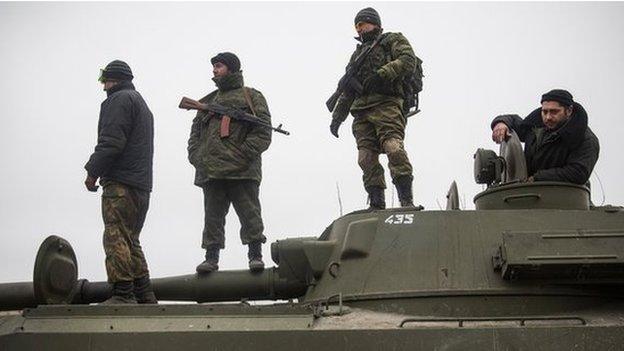Nemtsov report exposes Russia's human cost in Ukraine
- Published
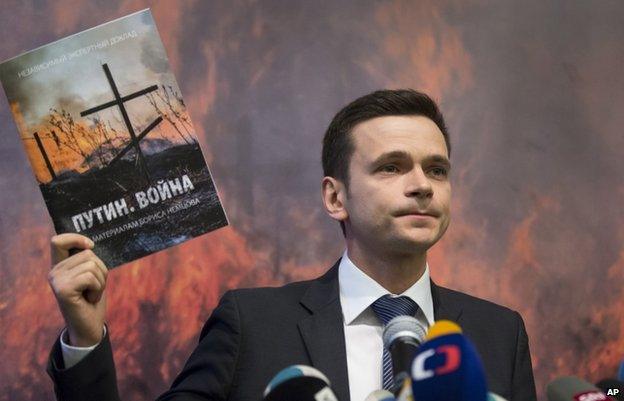
Ilya Yashin condemned the "vile, cynical" Ukraine war and blamed President Putin
When Boris Nemtsov was shot dead on a bridge a short distance from the Kremlin, it soon emerged that he had been preparing a report aiming to expose Russia's military involvement in eastern Ukraine.
That report was never written, but the murdered opposition politician's colleagues, led by his close associate Ilya Yashin, have since worked to finish it.
Most of the Russian-language report, entitled Putin. War, external, is based on facts that have already appeared in Russian and foreign media since Crimea was annexed in March 2014 and conflict broke out in eastern Ukraine.
But its authors say putting the facts together and describing the human and economic cost of the conflict makes a very compelling case for accusing President Vladimir Putin of waging war in Ukraine for his own ends.
They list evidence of soldiers sent to Crimea four days before key installations were seized by mysterious "little green men" without military insignia
They describe how the bodies of dead servicemen arrived in several Russian towns in late August 2014, after a major battle at Ilovaisk, near Donetsk
More bodies were brought home in February this year, they say, when fighting raged around the key transport hub of Debaltseve
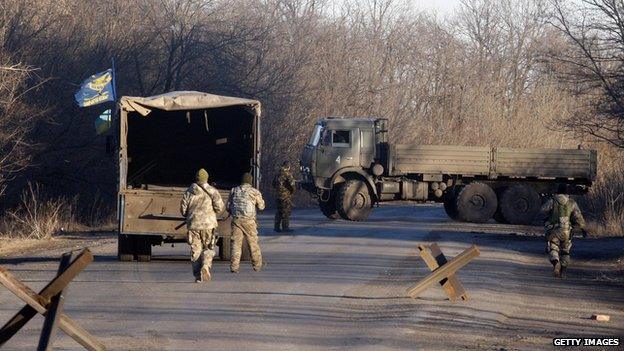
The rebel victory in Debaltseve came days after the Minsk ceasefire deal was signed in February
'Key successes'
Russia has consistently denied accusations that it has sent regular troops and armour to help rebels in eastern Ukraine, arguing that any Russians serving there are "volunteers".
But Mr Yashin, who presented the report, said Russian soldiers and equipment were decisive to securing all major victories claimed by the pro-Russian rebels in Donetsk and Luhansk.
"All the separatists' key successes were secured by Russian army units," he said.
"The soldiers directly admit they were directed on to Ukraine territory, admit that they were brought there to take part in a war operation. There is no doubt they did not end up there by accident."
The dossier presents evidence of volunteer soldiers who admit that it was Russian generals, not separatists, who directed the main battles in eastern Ukraine.
A Russian army veteran, described as helping to enlist volunteers, says they are not doing it for nothing: salaries can reach $2,000-3,000 (£1,250-1,900) a month.
Russian spending on the conflict is calculated at 53bn roubles (£665m; $1bn):
21bn roubles on the upkeep of 6,000 "volunteer" soldiers
25bn roubles on the upkeep of local militia in the rebel-held areas
7bn roubles on servicing of Russian military hardware
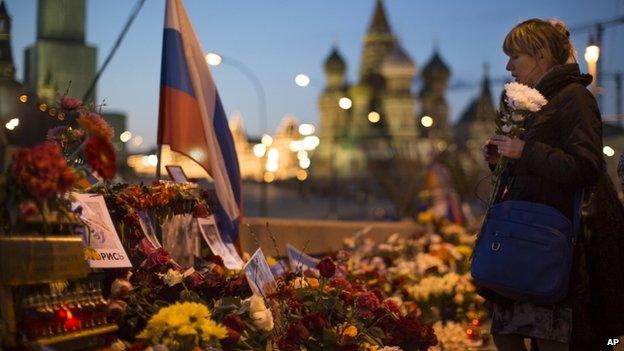
Boris Nemtsov was shot dead on a bridge a short distance from the Kremlin in February
Boris Nemtsov began work on the report early this year, after hearing that the relatives of dead Russian soldiers had not been given promised compensation.
But those relatives never went public and, after his assassination, have become even more scared.
Names and numbers of military units are documented, along with photos of weaponry, although activists point out these are harder to verify without knowing where they were taken.

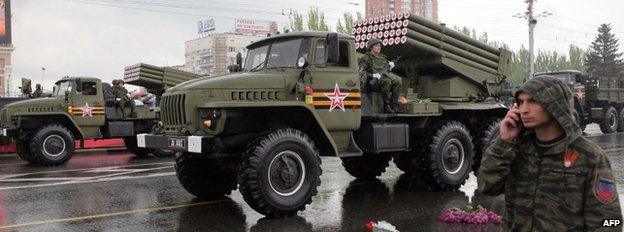

Mr Yashin said the opposition would seek donations to extend the initial print run of only 2,000 copies.
But publishing and distributing this kind of dossier is hard work. Many publishers were afraid to work with this material, he said.
And above all, the question remains: How many people are keen to learn the facts which for months have been available on the internet and the few liberal media that remain in Russia?
There are plenty of Russians aware of their country's involvement in eastern Ukraine, who nevertheless find it acceptable, because they believe Moscow is supporting those who wish to be independent of the government in Kiev.
But the opposition does not see it as support. It accuses President Putin of masterminding and directing the war to boost his failing popularity.
In this, they admit he was successful.
And it is entirely possible their report may well see the same fate as earlier works published by the late Boris Nemtsov.
Critics of Mr Putin praised Mr Nemtsov's reports on corruption in the president's entourage and on the true cost of the 2014 Sochi Olympics.
But they failed to galvanise protests against him.

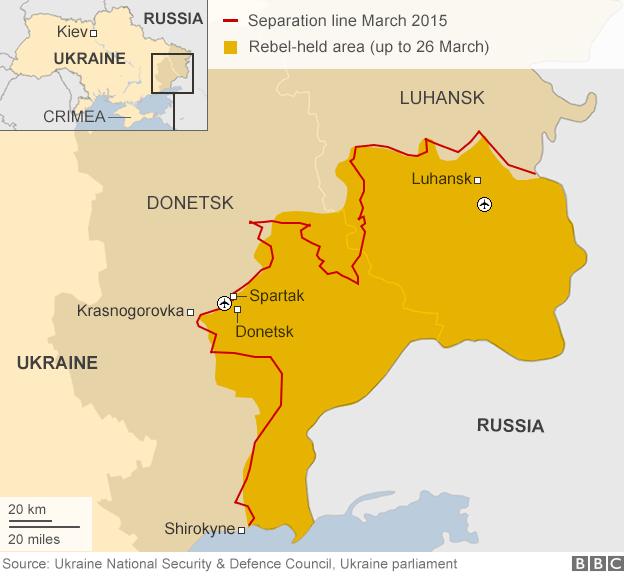

- Published12 May 2015
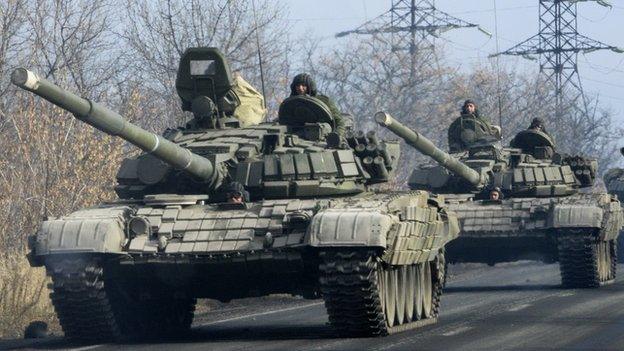
- Published9 March 2015
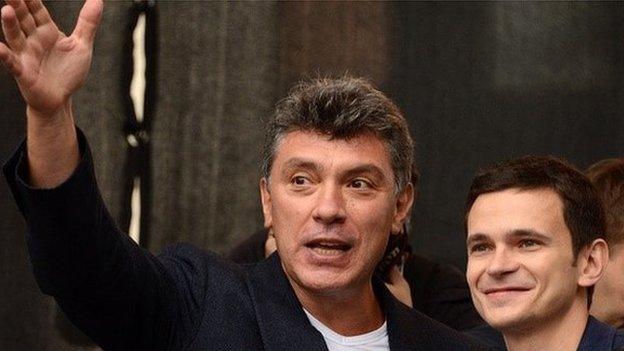
- Published7 March 2015
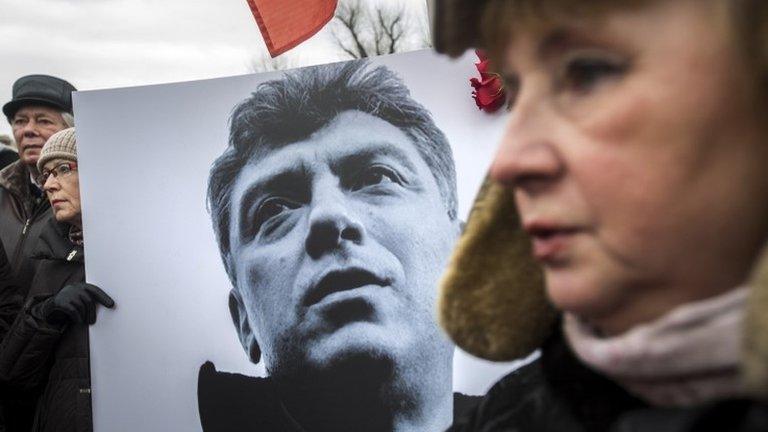
- Published14 March 2015
